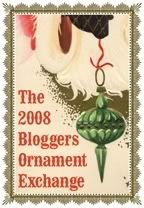Canada to declare plastic bottle chemical toxic
Bisphenol A widely used in food and water containers
OTTAWA - Canada will declare on Friday that a chemical widely used in water and baby bottles is dangerous, a move that could lead to an eventual ban on its use in food and water containers, officials said.
Government ministers are due to hold a news conference Friday to announce that bisphenol A will be classified as a toxic substance, thereby kicking off a review of the chemical and how it is used.
Major Canadian retail chains have already started removing bottles and containers containing the chemical, citing public concerns about possible health risks.
The U.S. government said on Tuesday that bisphenol A could be tied to early puberty, and to prostate and breast cancer.
Environmental groups say it is a dangerous chemical while the industry says its use in plastic products is safe.
Nalgene to phase out hard-plastic bottles
Containers made with bisphenol A chemical linked to health risks

ROCHESTER, N.Y. - Hard-plastic Nalgene water bottles made with bisphenol A will be pulled from stores over the next few months because of growing consumer concern over whether the chemical poses a health risk.
Nalge Nunc International, a division of Waltham, Mass.-based Thermo Fisher Scientific Inc., said Friday it will substitute its Nalgene Outdoor line of polycarbonate plastic containers with BPA-free alternatives.
“By eliminating containers containing BPA from our consumer product mix, our customers can have confidence that their needs are being met,” Steven Silverman, general manager of the Nalgene business, said in a statement.
With more than 6 million pounds produced in the United States each year, bisphenol A is found in dental sealants, baby bottles, the liners of food cans, CDs and DVDs, eyeglasses and hundreds of household goods. The chemical has been linked to neurological and behavioral problems in infants and babies, along with certain cancers, diabetes and obesity.The reusable, transparent sports accessory is made at a factory in suburban Rochester that employs about 900 people.
Nalge Nunc was founded in 1949 by Rochester chemist Emanuel Goldberg. The lab-equipment supplier’s product evolved in the 1970s after rumors spread about its scientists taking hardy lab vessels on weekend outings. That led the company to form a water-bottle consumer unit targeting Boy Scouts, hikers and campers.
In 2000, a new sports line of Nalgene-brand bottles offered in red, blue and yellow hues quickly became the rage in high schools and on college campuses.Highly durable and lightweight, resistant to stains and odors, and able to withstand extremes of hot and cold, screw-cap Nalgene bottles are marketed as an environmentally responsible substitute for disposable water bottles.
Citing multiple studies in the United States, Europe and Japan, the chemicals industry maintains that polycarbonate bottles contain little BPA and leach traces considered too low to harm humans.
But critics point to an influx of animal studies linking low doses to a wide variety of ailments — from breast and prostate cancer, obesity and hyperactivity, to miscarriages and other reproductive failures.
An expert panel of 38 academic and government researchers who attended a National Institutes of Health-sponsored conference said in a study in August that “the potential for BPA to impact human health is a concern, and more research is clearly needed.”








No comments:
Post a Comment